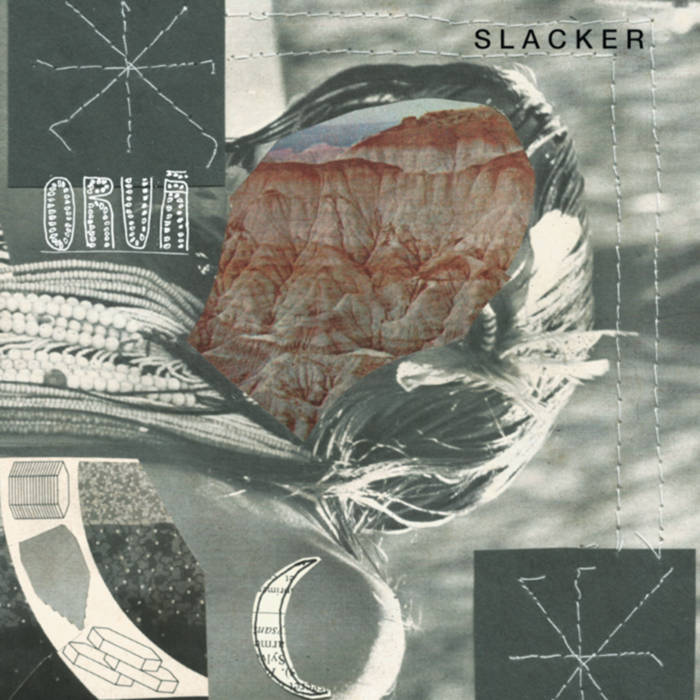The phrase “poor man’s jazz, working-class krautrock” appears in Oruã’s press materials with the same tongue-in-cheek grandiosity Royal Trux brought to calling themselves “the world’s greatest boogie woogie band.” There’s fun embedded in the claim, but it carries weight: a declaration that doubles as a joke that doubles as the truth.
Oruã emerged from Escritório, an underground creative space in Baixada Fluminense, one of Rio de Janeiro’s poorest areas. Born from improvisational jam sessions during one of Brazil’s most turbulent periods – coup d’état, political imprisonment, the rise of the extreme right – the band formed around Lê Almeida (guitar/vocals), a cultural agitator known for his label Transfusão Noise Records. Joined by João Casaes (synths), Bigu Medine (bass), and Zumpano (drums), Oruã became less a political statement than a natural byproduct of the times: resistance as daily practice.
Slacker sounds like what might happen if Can’s rhythmic investigations were filtered through Thee Oh Sees’ scuzzy psychedelic drive. Medine’s bass locks into repetitive cycles with mechanical insistence while Almeida’s guitars create a kind of scuzzy no-wave friction. On lead single ‘Deus-Dará’, the melody feels deliberately uneasy, as if trying to escape the arrangement but lacking the energy to break free.
The vocals meander in a way that could register as weakness: too dreamlike, almost childish, lacking urgency. But the album’s called Slacker, and that lackadaisical quality becomes its own logic. There’s something of Stephen Malkmus’s Real Emotional Trash-era guitar sprawl, where the point isn’t tightness but following the sound wherever it flows. The approach peaks on ‘Casual’, where lo-fi guitar melodies capture that classic 90s indie drift, and Almeida’s drowsy delivery locates genuine melancholy beneath the slacker posture like introspection disguised as indifference. You can hear Ulrika Spacek’s influence too, though Oruã trade that band’s clinical space-age aesthetic for something earthier and more terrestrial. You feel the asphalt heat in this music, the stoned drift of afternoon hours, sweat and cigarette smoke outside some corner bar in Rio de Janeiro.
The album carries a distinctly Teutonic aesthetic: Faust’s experimental sludge and Can’s hypnotic precision refracted through the heat and texture of Brazil. Bossa nova rhythms inform the songs’ structures even as the execution stays resolutely lo-fi and psychedelic. It’s a captivatingly odd hybrid: the languid swing of Brazilian music meeting Krautrock’s motorik drive, all coated in the grime of basement sessions rather than studio gloss. When they pull from Luiz Gonzaga’s forró or vintage psych, it’s not cosmopolitan genre tourism but an accounting of actual influences, rebellion etched into rhythm instead of spelled out in manifestos.
Recorded in Seattle with Jim Roth, the production stays deliberately murky. Casaes’ synths add haze while Alexander Zhemchuzhnikov’s saxophone haunts the margins, surfacing and disappearing between tracks. On Slacker, the band approach repetition as a kind of working ritual: clock in, lay down the groove, clock out. Within this mechanical, hypnotic cycle, Oruã finds its truth.


